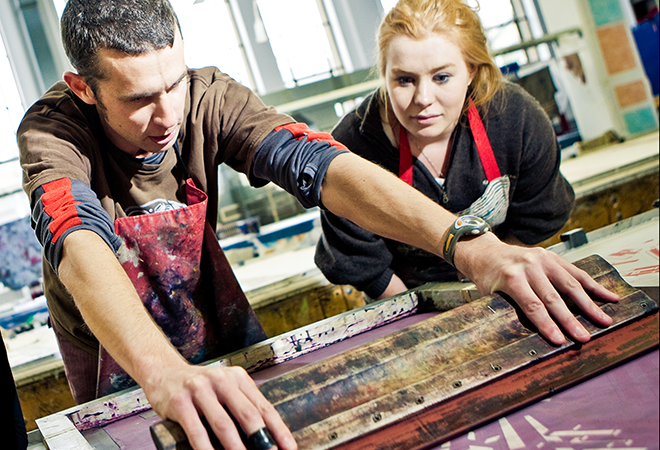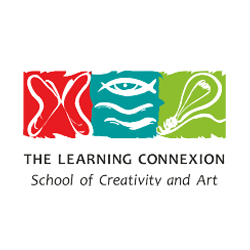
The ABCs for inclusive tertiary art education
Status
Completed: 4 December 2011
Project Details
A project completed in 2011, undertaken by The Learning Connexion, Wellington, to investigate if and how tertiary art education can be made inclusive enabling students with intellectual impairment to study art at a tertiary level.
Aims:
The main aims of the project were to:
- undertake case studies of current art education practices for adults with intellectual impairments that will highlight examples of good practice and identify obstacles and critical success factors
- provide practical action orientated suggestions for the development of a tertiary art educational methodology and resources for teaching adults with intellectual impairments
- make practical recommendations for an inclusive teaching methodology that enables students with intellectual impairment to study art at a tertiary level.
Methodology:
The project used a mixed method approach involving:
- a review of the literature
- face-to-face interviews conducted at exclusive, community-based art educational settings for intellectually impaired students
- an online questionnaire, to uncover best practices and critical success factors.
Team

Marcel Baaijens
Project Leader
The Learning ConnexionStatus
Funding
$9,998.00 (excl GST)
Key Findings
The key findings from the project included:
- Tertiary art education can successfully include students with intellectual impairments when a needs-based teaching methodology is used.
- A needs-based methodology makes ‘special’ art education obsolete as it allows a teacher to simultaneously teach intellectually impaired and non-impaired students, making tertiary art education truly inclusive.
- All students in an experimental inclusive class successfully met the class and tertiary art educational requirements.
- Inclusive tertiary art education benefited both intellectually impaired and non-impaired students.
- The benefits extended beyond the students to those working in the disability and education sectors and the community at large.
- An intellectual impairment can affect how someone learns. Art educational methodologies suitable for non-impaired students may be ineffective and inappropriate for use with intellectually impaired students.
- Inappropriate methodologies can cause the loss of unique cultural expressions and endanger cultural democracy.
- Art teachers interviewed for this research, who called their art educational approach ‘intuitive’, were often unable to define such an approach, prompting an attempt to define intuition and intuitive methodologies.
- The hypothesis that intellectual impairments may create a natural conducive condition for intellectually impaired people to be creative, which is rare in non-impaired students.
- Working alongside students with intellectual impairments can be inspiring, encouraging and beneficial for non-impaired students.
Key Recommendations
The key recommendations from the project focus on future research requirements including:
Inclusive tertiary art educational methodology | This research project may be the first to consolidate critical success factors and best practices from a variety of exclusive art educational settings for intellectually impaired people into an inclusive teaching methodology. It therefore recommends anyone wishing to develop an inclusive tertiary art educational methodology to consider and integrate the critical success factors uncovered and discussed by this research project.
Inclusive creative spaces | This research recommends exclusive creative spaces for intellectually impaired people to consider becoming inclusive. If they would employ the methodology discussed in this research and ensure that intellectually impaired students will not become a minority, they could welcome non-impaired students in their midst for the benefit of both student groups.
Research into the brain activity | Research into the brain activity in intellectually impaired students while they are creative could investigate the hypothesis that intellectual impairments may affect the self-monitoring part of the brain, but not the self-expression part, and creates a natural conducive condition for intellectually impaired people to be creative.
Transitioning into tertiary art education | Research how care, support, transition and other disability organisations (and those governing and funding the tertiary art education and disability sectors) can best develop and cultivate inclusive attitudes, visions, policies, and strategies that will enable intellectually impaired students to transition into tertiary art education.
Digital interactive touch-screen technology | Develop digital interactive touch-screen technology for both communication and creative design purposes, as they may prove to be valuable resources for teaching intellectually and linguistically impaired students.
Cultivate inclusive attitudes, visions, and teaching skills | Practical experimentation and research in classrooms to enable teachers to cultivate inclusive attitudes, visions, and teaching skills. Documentation and analysis of such experiments may serve as a foundation for a future teacher training course in inclusive art education.
A research report prepared by Marcel Baaijens.
(PDF, 1.59 MB, 68-pages).
- 6 December 2011